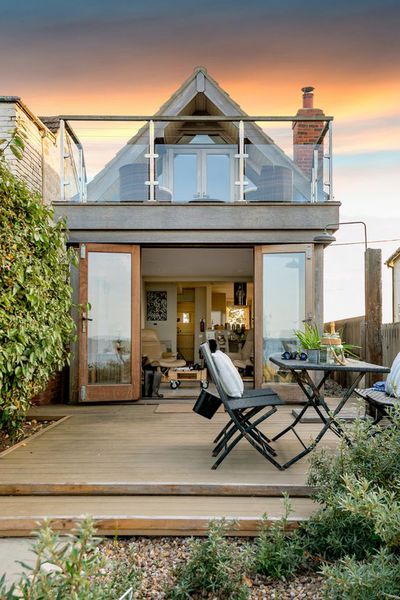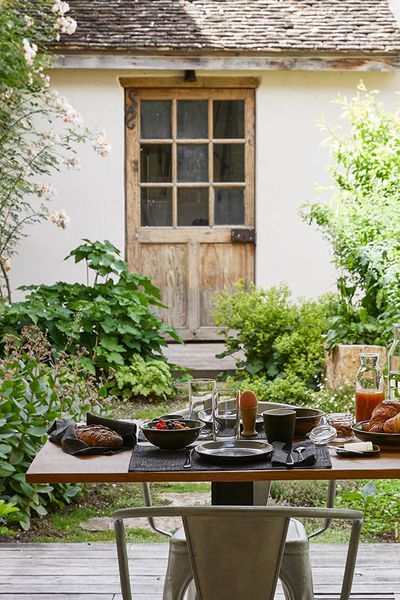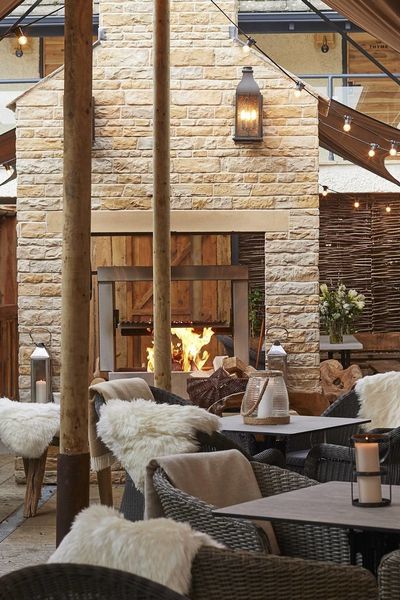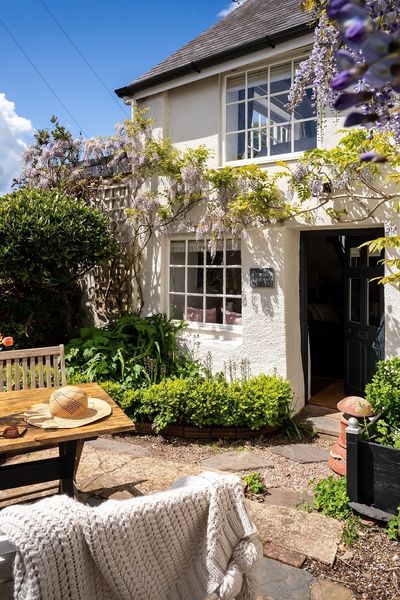
Eat like the French and embrace simplicity and seasonality on holiday
Guest Expert
5 min read
After many years of travelling, living and working there, Caroyln Boyd knows France. Especially French food. So much so, she literally wrote the book on it. To celebrate the launch of Amuse Bouche, her guide to eating your way round France, we asked her for a few tips and tricks for aspiring gallic gourmets.
Find the easy ‘takeaways’
In Britain, we’re used to seeing fast food dished out at burger chains, pizza joints and fish and chip shops, and of course the French have their fair share of those too (the latest trend is French Tacos). At home, a ready meal so often means stabbing the cellophane and shoving the plastic tray in the microwave. This isn’t necessarily the case in France, where ready-made food is sold at ‘traiteur’ shops and market stalls and is made with as much pride and care as you’d find for dishes in a restaurant. Look out for homemade meals or side-dishes, such as ratatouille, that you can simply warm up in the oven or microwave, to serve alongside fish; pick up a pot of ready-marinaded chicken fillets or pork which will save you from needing a whole pantry of ingredients to add flavour. At the boulangerie, there is likely to be a whole counter of easy-to-prepare food, such as Quiche Lorraine or a cheese tart; just cut it up and serve with a salad. In Provence, for example, you can try the local specialities such as the onion and anchovy tart pissaladière, the sweet-savoury Swiss chard tart tourte aux blettes or a colourful tian.
What the French really eat
The food we traditionally know as French – beef bourguignon, coq au vin – can be hours in the making, but you’re unlikely to find a French person who spends that long at the stove for a weeknight supper. While it’s true that French family Sunday lunches will involve a lot of cooking and preparation for a shared feast, the day-to-day lifestyles of the French are as pressured as ours – family, work, hobbies – but it doesn’t mean they don’t want to eat well. As well as the dishes offered by ‘traiteur’ stalls or shops, the French are experts in preserving food. In supermarkets you’ll find big jars of cassoulet in Occitane, or confit de canard in the Périgord. In other areas, look at the regional specialities aisle for other things to try. If you’ve had a good restaurant lunch, then a tin of fat sardines on slices of toasted baguette with a glass of wine might be all you need.
The joy of French food shopping
As much as I love the variety of a French hypermarket – they’re worth a visit for the immense yoghurt aisle alone – nothing beats the nation’s morning markets. Stalls abound with glossy vegetables and fruit, enticing cheese selections and appetising charcuterie, and it can be fun going around and filling your basket with what’s on offer. That said, some regional specialities can prove a puzzle when it comes to preparation. That’s when asking the vendor for suggestions can prove invaluable. The simple question ‘Est-ce que vous avez des suggestions pour préparer (or cuisinier) ce produit?’ can reap rewards: never would I have thought to grill thin slices of Fourme d’Ambert cheese on a voluptuous fig, had the stallholder not suggested it; nor would I have bought walnut oil to drizzle over lamb chops and a green salad; yet I have devoured both suggestions with relish. The French high street is fun for shopping too: a gîte holiday warrants the morning trip to the boulangerie for fresh bread and croissants; while the patisserie is the place to pick up eclairs or tarte au citron for that evening’s dessert; and then there’s the fromagerie, the chocolaterie, the poissonnerie and the boucher in which to indulge.


Big lunch, small supper
Restaurants’ lunchtime menus are often much cheaper than their evening offerings, with a prix fixe menu or menu du jour often costing around £25 for three courses. This means you can fill up at your leisure each lunchtime (be sure to book ahead if you want to eat at the best restaurants, though) and then simply gather a selection of foods for ‘grazing’ each evening. This could be a spread of delicious local cheeses; a charcuterie platter; easy ready-made salads; olives and cornichons. Then just add a decent bottle of wine, and supper is served!
Pick up a picnic
The French are expert picnickers; after all, it’s from their pique-nique that we have taken the word. While you don’t need to go to the lengths that I’ve seen on occasion – where the group have not only had a tablecloth but are also serving from ceramic dishes onto proper plates – you can be assured that you’ll find picnic tables absolutely everywhere. Even tourist attractions will have an ‘aire pique-nique’ so visitors can bring their own, in stark contrast to British attractions that funnel you into their café with stern notices saying picnics are forbidden. So having your own kitchen in a gîte makes preparing your picnic easy, especially with all those leftover market buys. Picnics have the benefit of being flexible, too. So when the kids are hungry at 11am and no restaurant is serving until at least midday, you can crack open the cool bag wherever you are and fend off those hunger pangs. Or, if you’re hiking, bike-riding, or generally enjoying France’s enchanting countryside where there isn’t a restaurant to be seen, the picnic is king.
Finally… the dos and don’ts
Do bring enough food for a day or two if you’re arriving at a rural location on a Saturday evening, because shops will be closed on Sunday and possibly Monday too.
Don’t forget your shopping bags and a cool bag if you’re shopping and staying out for the day after the market trip.
Do say ‘Bonjour’ to all shopkeepers and market stall holders, it’s the magic word for breaking the ice, even if your French runs out after ‘s’il vous plaît’.
Don’t forget to ask for advice on how to cook or serve the produce. They know it best!
Want more travel inspiration? Get our email updates direct to your inbox >
Sign up >Share this article:
You might also like
A weekender’s guide to Le Marais in Paris

Carolyn Boyd
Guest Expert
5 min read
French city breaks for foodies

Christopher Wilson-Elmes
Sawday's Expert
5 min read
4 days in south Wales: A tasting tour of Tenby and beyond

Christopher Wilson-Elmes
Sawday's Expert
5 min read











